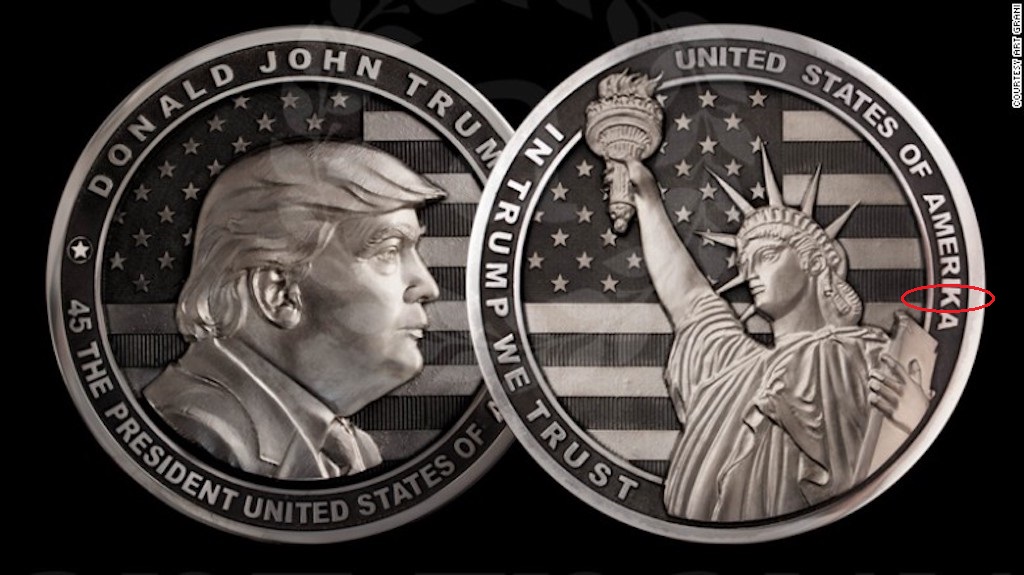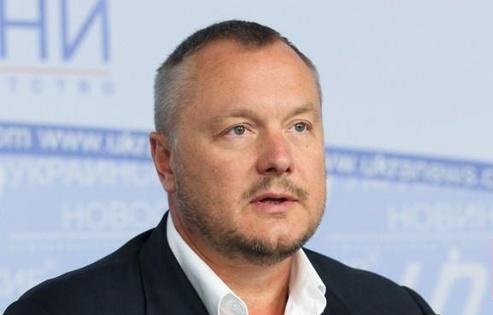“Russophobia is so deeply rooted in European-American ideology,” Sergey Markov says, that Moscow doesn't expect new US President Donald Trump to end all sanctions all at once but rather “in a clever fashion” that avoids problems for him and over a significant period of time.
The words of Markov, a well-connected Russian political analyst, politician and commentator, are important to correct two widely held but mistaken assumption. On the one hand, some appear to have thought that Trump could magically end all sanctions at once, ignoring the reality that the sanctions are varied and not all were imposed by the US.
And on the other hand, others appear to think, especially after the confusion of yesterday when almost simultaneously the US “corrected” some sanctions and stated at the UN that it wouldn't lift them until Russia withdraws from Crimea, that if he does not lift sanctions now, he won’t until all the goals that they are intended to promote have been reached.
Instead, sanctions can be eased or lifted entirely in one area as the result of a deal about issues unrelated to them, or at least so has President Trump suggested; and on the other hand, the process of easing sanctions can occur sufficiently slowly that some defenders of such an action can deny that anything is taking place.
Markov’s argument about sanctions and their prospects likely reflects the thinking of many in the Kremlin and consequently merits the closest possible attention not only because of the message it send to broader Russian elites but also because of the one it sends to the West.
He suggests that neither Putin nor Trump wants to talk about sanctions at least not now. Putin, for his part, has “several reasons” for that. On the one hand, raising the issue is something a great power doesn't do. And on the other, Russia has long experience with living with various kinds of sanctions and the current ones are as varied as any.
Moreover, Markov says, “the continuation or lifting of sanctions is the internal affair of the US.” Moscow can’t offer concessions to achieve a lifting of sanctions because to do so would mean that even if these sanctions are lifted, the West would simply re-impose others when it wanted to extract further concessions.
But according to Markov, “it is extremely disadvantageous for Trump to raise the issue about the possible lifting of sanctions in these talks with Putin.” The new American president needs Congressional approval for many things, including his new cabinet, and lifting sanctions now would spark protests on the Hill where anti-Russian feelings are strong.
Getting into an argument with Congress, especially over an issue which for Trump is secondary, simply is “too high a price” for him to pay. “Does this mean that Trump will not lift sanctions? No.” Markov argues that “he will lift them but that he will proceed by another more clever path.”
“It is possible,” Markov says, “that Trump will begin to lift them because of the struggle with ISIS and international terrorism.” A joint effort will be difficult if sanctions affecting the Russian defense ministry and even more the Russian security services are left in place.
Russians should remember that “it is in Trump’s power to lift almost all anti-Russian sanctions except the Magnitsky Law
… but it would be rational for Trump [to take this step] without angering Congress” that could, if it was so inclined, respond to his action in this area by opposing others.
Moreover, there is a great deal Trump can do that won’t raise the hackles of people on the Hill. Far more important than the formal anti-Russian sanctions the Obama Administration imposed are “the so-called unofficial limitations” involving such things as limiting the ability of banks to make loans or of US organizations to cooperate with anyone in Russia except “the radical opposition.”
“In this silent dialogue with the US president, the issue of American sanctions for Russia is secondary,” Markov says. “For Russia much more important are ties with the EU and therefore more important the lifting of European sanctions. What it needs from Trump is an end to pressure on the EU to maintain sanctions and to signal that the US plans to end its own.
That and the upcoming elections in several European countries will be enough, Markov says, to lead to “the step by step winding up of sanctions in the course of the spring of 2017.”
Once the US and the EU end sanctions, Russia will be under some pressure to end its counter-sanctions, but “here one must be careful,” Markov says. In his view, Moscow should try to extend them “as long as possible,” especially in the agricultural area to allow for more Russian growth there.
Western actions concerning the Sochi Olympics, regime change in Ukraine and then sanctions “showed that we cannot modernize the economy relying only on Western technology because access to that can be limited for one or another political reason and, if need be, be an invented one.”
In the post-sanctions period, Markov says, “Russian strategy will be based not only on the idea that sanctions bear a temporary character but on the idea that their lifting also will likely turn out to be a short term affair. Hopes for stable strategic relations with the West, unfortunately, are something that Russia sill not have for many more years.”
This doesn't mean, he says, that “cooperation between us is impossible.” It isn't but it will require new forms; and it will be based on Ronald Reagan’s slogan that in such relations it is necessary to “trust but verify.”
Related:
- The Trump administration eases sanctions against Russia
- Putin is attacking in Ukraine precisely to boost chances for 'Big Deal' with Trump
- With Trump, Russian government and Russian opposition swap positions on US
- Solovey on the shape of the emerging Putin-Trump 'Big Deal' on Ukraine and much else
- In case anyone thinks Putin isn't getting exactly what he wants from Trump...
- What Putin got and what Trump gave up in their phone call





